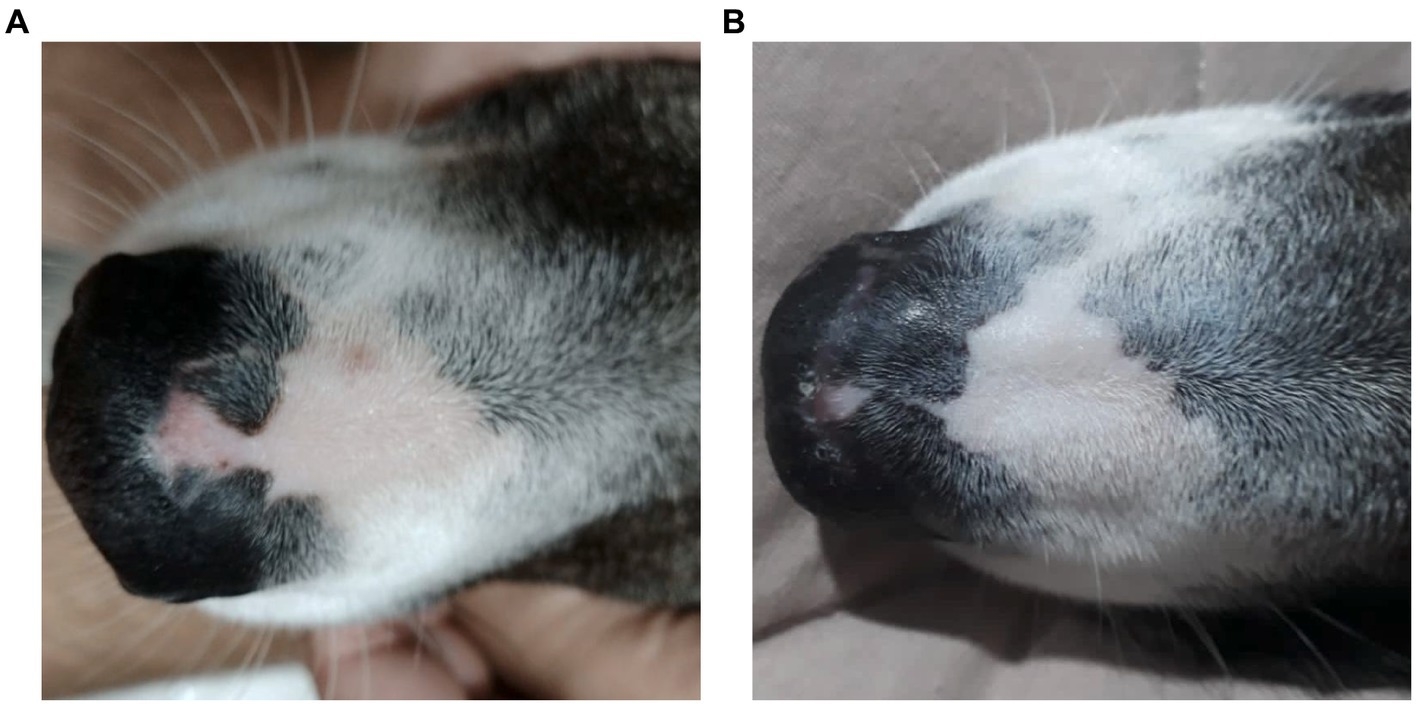When it comes to the potential therapeutic benefits of cannabinoids, they’re often thought of in relation to how they can help out us humans. A new case report, however, suggests that these compounds could be used to treat our poorly pooches too, after cannabis oil was successfully used as a treatment in a dog with an autoimmune skin condition.
The report presents us with a 2-year-old mixed-breed dog with discoid lupus erythematosus (DLE), a common autoimmune skin disease in dogs. Usually found on the nose and ears, it’s characterized by intense inflammation that can lead to loss of pigment and hair, redness, and even ulcers and crusting. In other words, it’s not a pleasant experience for our pups.
Conventionally, DLE is treated with a type of anti-inflammatory medicine called corticosteroids – these are used to treat a lot of human skin conditions too. However, they can lead to side effects or prove ineffective with long-term use; the symptoms of the dog in the report didn’t improve even after several months of use.
This is where the cannabinoids came in. Previous research has suggested that two of the most notable cannabinoids, cannabidiol (CBD) and tetrahydrocannabinol (THC, best known as the one that gets you high), are anti-inflammatory and can be used for long periods with no significant side effects. As a result, the pup patient was referred to a specialist vet who prescribed a cannabis oil containing CBD and THC to treat its DLE.
It took a while to find the right dosage, but eventually, they found it: a low, twice-daily dose of a single full-spectrum cannabis oil containing a 3:1 ratio of CBD to THC. “Within a few weeks of starting [cannabinoid therapy], the dog showed significant improvement in skin lesions and in liver enzymes levels. After 1 year, the dog remains clinically stable on a low dose of full-spectrum CBD-rich oil. No evidence of DLE recurrence was observed,” the authors write.

The dog’s nose before (left) and after a year and 3 months of treatment with cannabis oil (right).
And importantly, the dog “exhibited robust overall well-being [and] maintained an active and playful disposition.” What a good girl.
The success of this case suggests that treatment with cannabinoids could provide a viable alternative for cases where traditional therapeutics aren’t suitable, though the authors are keen to caution that this is just one case – further research is needed to get a full picture of its long-term safety and efficacy.
“While the song of cannabis therapy for DLE in dogs holds immense promise, we must continue listening closely, gathering more evidence, and refining the tune,” the authors write, but they conclude on a hopeful note.
“This case report adds its verse to the growing chorus, paving the way for future research and potentially offering a new rhythm of hope and a haven from the long-term reign of corticosteroids for dogs battling this challenging disease.”
The case report is published in Frontiers in Veterinary Science.
Source Link: Dog With Autoimmune Skin Disorder Successfully Treated With Cannabis Oil